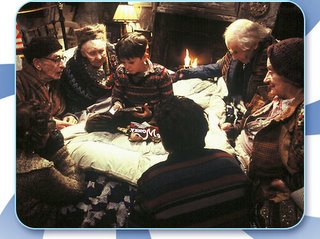LM Montgomery was my favorite author when I was a kid. I had, and still have, every book the woman wrote. My favorite was, and still is, The Blue Castle-- which now I know is considered her "adult" novel. This year is the 100 year anniversary of Anne of Green Gables, which was her first "big" hit.
Why do I bring up this childhood remembrance? Because I'm trying to write about Anne in my dissertation. I already wrote this section, but it vanished along with everything else on my hard drive, and so now, I'm hoping that if I ramble on about Anne that I will be able to have my memory refreshed and that I will finally feel more inspired to write.
The question I ask in my dissertation is, Why is Anne still popular after 100 years? Other books that were written in much of the same style at the same time have long since been discarded, but somehow, fans still hang out to Anne? What is her appeal?
I always liked Anne because she was kind of spunky. I think I always thought I was a little spunky, but I don't think that I was. I think that I was just a little bookworm, but I could read about these spunky characters and feel like I knew them enough that they were a little bit a part of me. i think characters like Anne gave me courage. You could know what you wanted and still be likable. You could be smart and popular. But was Anne popular-- not really, she just had her close friends. She just got along well enough with her friends that as a reader you felt like she must be popular. Don't get me wrong-- she wasn't the class reject or anything, but you didn't see others following her trends-- instead, she followed others-- think puffy sleeves and black tresses.
I think Anne still has some appeal because she's a generational character. I can't wait for my daughter to be old enough for me to share Anne with her. And obviously, I am not the only one who felt that way. I was turned onto Anne by a friend of my mother's, an older Canadian lady. Thinking about her now, I realize she was probably a child when Montgomery first wrote the text.
Why do certain books stand the test of time when others just fall by the wayside?
Dear Me...
12 years ago


